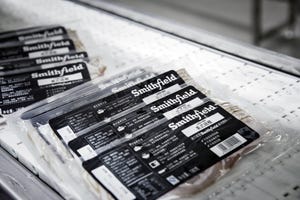A new course this spring at the University of Illinois will address false statements and emotional untruths being used to win the hearts and minds of the “typical” American consumer
March 24, 2010

A new course this spring at the University of Illinois will address false statements and emotional untruths being used to win the hearts and minds of the “typical” American consumer. The new course for animal science freshmen that teaches about these fundamental societal issues that are impacting the care and use of animals in production is titled “Contemporary Animal Issues.”
University of Illinois associate professor in animal sciences Janeen Salak-Johnson will explore a new and increasingly important side of those sciences, addressing such topics as animal well-being, animal-environment interactions, domestication of animals and contributions to human welfare, biotechnology, food safety and societal and economic impacts of animal production.
“In the United States, animal agriculture has become a small island surrounded by an urban sea,” Salak-Johnson says. “We need to teach our students how to reclaim the legitimacy of animal agriculture by leading with moral arguments based on science.”
Science along with ethics and experience should drive the changes that animal agriculture will make in the future.
“Consumers want to know where their food comes from, that it is safe and, ultimately, affordable,” she says. “We need to show them that our production practices are humane and based on science. Our students need to be exposed to the issues now so they are prepared when they enter the real world.”
The new course is one example of major changes coming for the school’s animal science curriculum in 2010-2011, to focus not only on courses, but also on how faculty create learning opportunities for students.
“The revised animal sciences curriculum is expected to provide a more integrated sequence of subject matter that will not only teach our students technical information, but help them develop a better sense of what it means to be a professional animal scientist and to understand the many career opportunities in this field,’ remarks Neal Merchen, department head.
The revised curriculum’s three components of a core curriculum, a specialization curriculum and a demonstration of learning provide students greater flexibility and options in their animal science major.
“For example, we may have a student now who hasn’t taken genetics until senior year,” says Walter Hurley, professor of animal sciences. “Even though we recommend a certain path, students aren’t required to take classes in that order. Our revised curriculum develops a core foundation so a student like this could discover an interest in genetics early. Then, he or she could take more genetics classes in junior and senior year.”
During their demonstration of learning, students will be urged to engage in internships, study abroad programs, academic teams and any other activities that extend beyond the formal classroom and share the knowledge they have gained with classmates.
“Animal agriculture is always changing,” says Salak-Johnson. “We need to continually find ways to expand the influence our students will have in the future and arm them with the knowledge they need to be successful.”
You May Also Like


